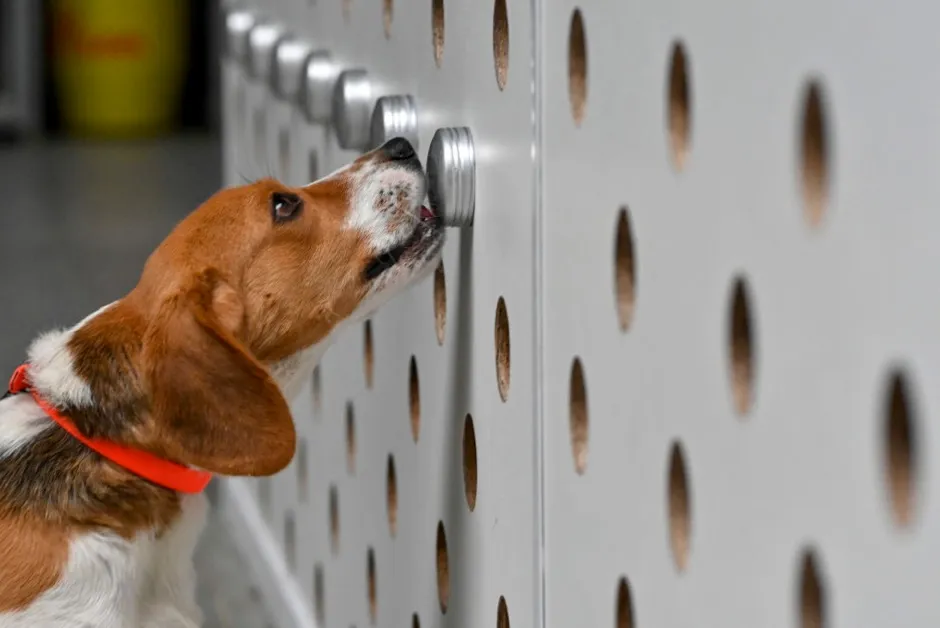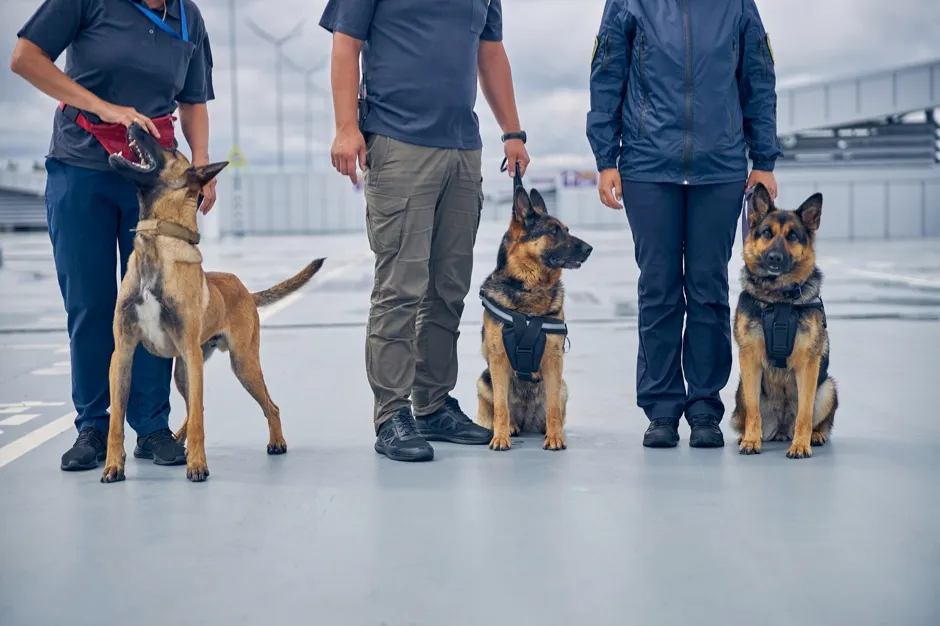For more than 15,000 years, dogs have hunted with us, pulled our sleds, protected us, and even provided a furry shoulder to cry on. Could they now help us fight the coronavirus, too?
A new review paper published in the Journal Of The American Osteopathic Associationsuggests they can. Tommy Dickey, a professor emeritus at the University of California Santa Barbara, and his collaborator BioScent’s Heather Junqueira, pored over all the current research available and found that dogs were capable of sniffing out individuals who had been infected with the coronavirus SARS-CoV-2.

“The dogs are basically smelling the sweat of the person,” Dickey said of a series of experiments by French and Lebanese researchers. In this study, 18 dogs had an accuracy rate of 83 to 100 per cent after only four days of training.
While the coronavirus itself does not have a smell, metabolic substances excreted by COVID-positive people can be picked up by the dogs.
“One dog twice indicated positive results that could not be confirmed,” Dickey said. “Two weeks later they found that both people who gave those samples had to be hospitalised with COVID.”
Read more about COVID-19:
- Coronavirus vaccine: is it safe?
- You may need to vaccinate your pets against COVID-19
- Will COVID-19 be over by 2022?
Meanwhile, a German research group found that after a week of training, eight dogs were able to achieve a 94 per cent detection rate, when sniffing saliva samples.
Dogs are already used to detect cancer, malaria, Parkinson’s disease and diabetes, but despite this, many people are not aware of the dogs’ skills. “Medical scent dog research has really only gained traction in recent years and it will take many more peer-reviewed papers before the idea of using dogs for disease detection hits the mainstream,” said Junqueira.
Dickey and Junqueira found that various different dog breeds were used in the research. “A lot of Belgian malinois were used, and dogs who have been trained on explosives and on colon cancer. So they were pro sniffers," Junqueira said.
However, even dogs that aren't 'classic' detection breeds can still be trained. A Colombian study used three different breeds of dogs to detect COVID, one of which was an American pitbull. The six dogs in this study sniffed 9,200 samples, and99.9 per cent of the specimens indicated as negative by the dogs did not carry the virus.

“The pit bull had been previously mistreated, but they rehabilitated him, and he was perfectly capable and doing a great job at sniffing,” said Dickey.
And the dogs are quick too – detection takes a matter of seconds, making them much faster than a coronavirus test. For this reason, they could be used as part of the screening process at ports and airports, or even at festivals and sporting events, to detect people who are infectious.
In fact, a UK study claimed that one detection dog could screen around 250 people per hour, which may reduce the need to enforce quarantine and isolation on all travellers.
Further research is needed to determine to what degree the dogs can sniff out COVID-19 in asymptomatic people.
Read more about medical detection dogs:
- Medical detection dogs can sniff out diabetes
- Dogs can sniff out lung cancer with nearly 97 per cent accuracy
With all the sniffing going on, some people might be concerned about the risk of the dogs transmitting COVID-19 between individuals. While there is still research being carried out, the evidence suggests that the risk is low.
However, it is hoped that wearable devices may be developed that mimic the sensitivity of a dog’s nose. These could be worn all the time and would be able to detect any disease biomarkers in the wearer’s sweat.
Reader Q&A: How do seizure alert dogs detect seizures?
Asked by: Edward Seymour, Hove
Seizure alert dogs are trained to give a consistent signal (such as barking, or jumping up and pawing), anywhere from 5 to 45 minutes before their owner suffers a seizure. The prevailing hypothesis is that the dogs are able to spot subtle behaviour cues, but it’s also possible that they are detecting some unique smell – perhaps a chemical in their owner’s sweat.
Seizure alert dogs are a controversial topic of research and there is still some scepticism about how accurate their predictions are, never mind what the exact mechanism is. But seizure alert training is still valuable, because untrained dogs find it very stressful when their owner has a seizure, and training a dog to react in some predefined way before or during a seizure is reassuring to them.
Read more about dogs:
